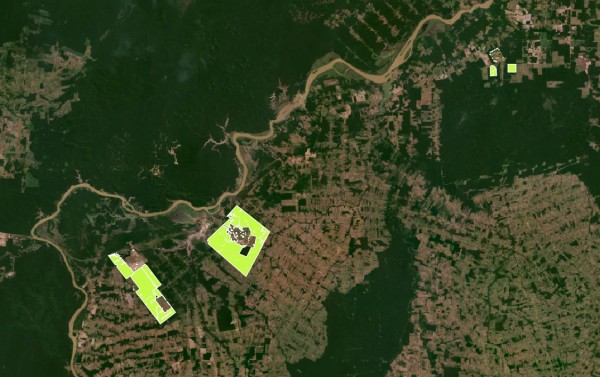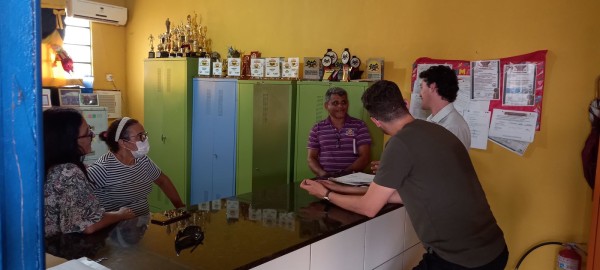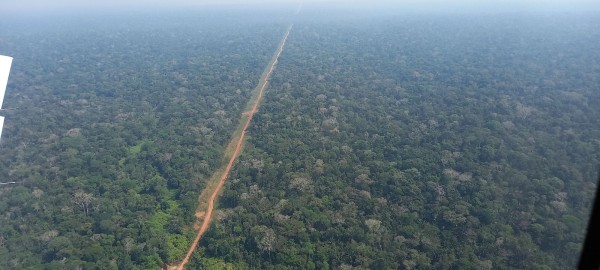As deforestation and organized crime have expanded in the Amazon in recent decades, remnants of original forested areas, known as green islands, remain in the region known as the “Deforestation Arc.” These green islands ensure forest preservation against the onslaught of deforestation. Beyond Conservation Units and Indigenous Lands, carbon credit projects are initiatives that unite private landowners and communities for the conservation of standing forests and the development of local communities through benefit sharing and activation of bioeconomy economic chains.

One such project aiming to remove carbon from the atmosphere and conserve the forest is the Rio Madeira, located in the region known as Amacro – between the states of Amazonas, Acre, and Rondônia. The total area of the project is 52,274.05 hectares of original and intact standing forest.
“The Rio Madeira project is extremely symbolic for this region that has been heavily impacted by deforestation. With the existence of the project, we will prevent about 97% of deforestation in this territory. Rio Madeira means standing forest with the conservation of biodiversity in species that are currently threatened with extinction, such as the Tibira Rupestre birds, the Maçarico do Campo, the Blue-winged Parakeet, and the Chestnut-eared Aracari. Keeping the forest standing is keeping the fauna and flora alive,” evaluates Marcelo Haddad, Forest Director at Future Carbon Group.

The project’s initiative comes from private landowners who have been in the region for over 40 years, have a solid documentary history of ownership, and are well-known in both states. “In the Amazon, it is difficult to find such a solid ownership chain and areas protected by the same owners for decades,” states one of the project reports. Additionally, the project includes an essential element of quality projects, which is benefit sharing, where owners allocate a significant portion of project resources for social impact. This is the case with the Rio Madeira project, which has revenue linkage with clear objectives for positive social impact.
Landowner and rancher Túlio Lemos succinctly summarizes the project’s commitments: “We invest in this project because we believe and trust in the high integrity of Rio Madeira, as well as the integrity of all partners involved. We all follow the same line of thinking, producing sustainably by combining food production with environmental preservation and socio-economic impacts on communities, resulting in a sustainable, profitable, and lasting partnership. This enables us to further promote activities in the bioeconomy chain and generate social and economic benefits through community inclusion in the project. We have learned the concept of social license and applied it to our project: production and conservation can only coexist when the project is embraced and supported by the local community, and that’s exactly what we have here, an alignment of values and a long-term vision,” says Túlio.

The project has already undergone important validation stages with the International Certification VERRA/VCS, and international auditors have visited and verified on-site, confirming the positive impact of the Rio Madeira project in the region. With the support of the local community and stakeholders, the project will become a milestone in the carbon credit 2.0 market in Latin America. After some criticism of old carbon projects, new paradigms were created in 2022 and 2023 for carbon projects, based on high technical and documentary integrity, benefit sharing with the community, and commitments to biodiversity conservation, and all these elements are evident in the Rio Madeira project.
More information: http://www.linkedin.com/company/futurecarbongroup/
Media Contact
Contact Person: Media Relations
Email: Send Email
Country: Brazil
Website: https://futurecarbon.com.br/home-en/
